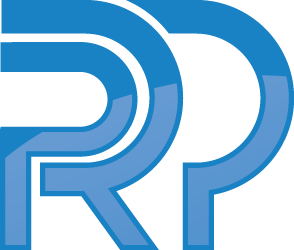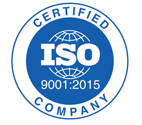
What is quality? According to Merriam-Webster, quality is defined as “degree of excellence.” To those working in Quality in the pharmaceutical and medical device industries, that definition certainly holds true -- though it’s not quite that simplistic. In the world of Quality professionals, quality includes assessing the extent to which certain standards or requirements are achieved. Going a step further, a Quality System spells out the specific standards or requirements and how the organization goes about fulfilling them. This involves various inputs including policies, standard operating procedures (SOPs), manuals and handbooks, and most importantly… people. Quality departments play a tremendous role in one of the most critical responsibilities facing pharmaceutical and medical device companies: ensuring that products and devices are both safe and effective. Despite this significance, Quality Systems are flawed at many companies
Here are 4 common deficiencies noted throughout the industry:
Infrequent or Inadequate Reviews
Given the criticality of Quality Systems, as well as the scrutiny they are subject to, a management review must be performed at the right time and in the right way. This cannot be an annual or semi-annual meeting where participants are just going through the motions. To ensure management buy-in, as well as effective communication of goals, responsibilities, successes, and failures, these reviews should be held at least quarterly, if not monthly. Both regulators and auditors will closely evaluate this process as a way to assess your commitment to top quality. As such, it must be robust and well-documented. Each meeting should have a written agenda of topics to be covered and include a documented assessment of timelines and progress toward achieving established goals. Clearly demonstrate the use of metrics and key performance indicators to assess performance, as well as provide evidence of your organization’s ability to respond to unrealized goals, continually reassess objectives, and adapt to changing trends.
Insufficient Talent Assessment and Training
Your Quality System may be comprised of superior processes, methodologies, and policies and represent a clear example of best practices throughout the industry. However, this won’t do you any good without talented people with appropriate skill sets executing on a daily basis. When was the last time you did a complete 360-degree talent assessment of your quality employees? Unfortunately, for many companies it’s been years. On an annual basis, a formal assessment of team members’ strengths, areas of development, and goals will help you understand where the gaps exist and where enhancements need to be made. Perhaps you’ll discover that some employees are not being fully utilized, some are better suited for different roles, some need more mentoring and coaching, some underperformers need to terminated, and/or your internal team needs to be supplemented with external resources.
Too many organizations sacrifice training when time is short and resources are thin. Don’t fall into that trap! There’s too much at stake. With regulations constantly changing, it’s crucial that your team members constantly expand their knowledge-base and expertise. Even the brightest, most talented individuals need to be continually honing and enhancing their skills to minimize the risk of noncompliance.
Complex and Lengthy Documentation and Surveys
Having robust processes and documentation is wise, however you must avoid going too far. Manuals, policies, and SOPs have little value if the team can’t understand them. Further, giving people 50 page documents to read is asking for trouble. While a Quality System can be extremely complex, with many different components, it’s your job to transform it into something that can be easily digested and understood (consequently, easily followed). Keep your documentation clear and focused on critical areas. Areas of less consequence should be addressed, but with the weight (and length) they deserve. In other words, assess risk and coordinate your efforts accordingly.
On a similar note, surveying internal stakeholders and customers can be a valuable tool for improving your Quality System, but only if conducted in the right manner. Who is actually going to take the time to answer pages and pages of survey questions? Even if some do, will you get meaningful responses? Keep your surveys concise, only including those questions whose responses can support impactful change. Substitute volume with a few open-ended questions that will bring you feedback that can truly be used to better your performance.
Inefficient Audits
Very few people enjoy being audited. As a former auditor, I can definitely attest to that (I think the most common question I was asked during my auditing years was “When do you think you’ll be done?”). Yes – audits can take up a lot of time and add multiple “to do’s” to your already busy days. At the same time, an audit can have tremendous value by identifying potential problems, as well as potential solutions to those problems. But the responsibility to ensure that the audit is value-added and progresses as smoothly as possible is shared between both the auditor and you, so do your part. Too many individuals in your shoes sit back passively and completely defer to the auditor. No! You must be proactive. Insist on a formal kick-off meeting with all key personnel so you can understand the audit program and the planned testing procedures, and don’t be afraid to speak up. If you feel the auditor is focusing unnecessarily on unimportant details and insignificant areas, you should not hesitate to make the point. Remember, nobody knows your Quality System like you do. Audit steps that might make sense with other departments or with other companies, may not make sense for your area. In all likelihood the auditor will be very appreciative and welcome your input, and this will benefit both of you. Audits are unavoidable, so make the most of them!
A flawed Quality System can have serious ramifications, including recalls, fines, consent decrees, plant closures, damaged credibility and reputation, and more. Further, patients are placing enormous faith and trust in pharmaceutical and medical device companies to supply the highest quality products. Therefore, if you believe any of these deficiencies apply to your Quality System, take action immediately.





